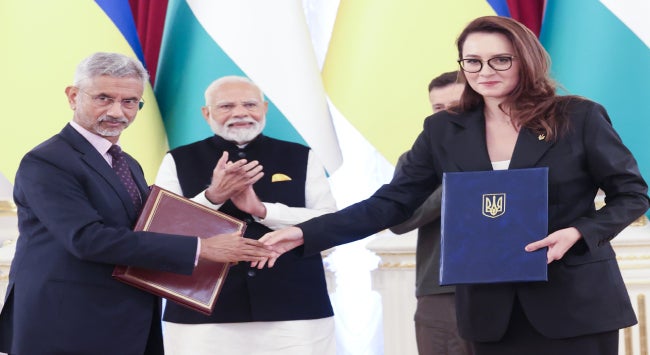
| Title: | India and Europe After Ukraine |
| Author/s: | Chilamkuri Raja Mohan |
| Abstract: | This working paper explores the paradoxical transition of Ukraine from an intractable difference between India and Europe during 2022 into a catalyst for reframing the bilateral relationship and elevating it to a higher level. It reviews India’s problematic European inheritance from the past, the divergence of the Cold War era, the tentative outreach to Europe after the fall of the Berlin Wall and the new geopolitical factors that have persuaded India and Europe to rethink their relationship after the Ukraine War that we might call the fifth phase in modern India’s engagement with Europe. |
| Date: | 23 October 2024 |
| Read More |

| Title: | Economics of Free Healthcare: The Key Trend Setters and Sustainability of Public Health Expenditure in Sri Lanka |
| Author/s: | Tilak Abeysinghe, Nethmini Gunarathna |
| Abstract: | The Sri Lankan welfare state that once acclaimed a name for the country is not built on financially sustainable principles. This working paper examines the economics of free public healthcare in the Sri Lankan context. It analyses the operation of ‘demand-induced supply’ in a free healthcare system in contrast to ‘supplier-induced demand’ in a market-driven healthcare system. Regression results show that the relationship between the elderly population shares and per capita public health expenditure (PHE) is weaker than expected. The death rate from non-communicable diseases is a robust predictor of PHE. Sustaining the expenditure momentum adds further pressure. As demand increases, cost pressures build up, and exogenous cost elements start to kick in, for example, the cost of medical imports. Although foreign prices of medical imports have gone up, a primary contributor to the upward trend in import cost is the secular depreciation of the Sri Lankan rupee. Projections show the possibility of continuing the past expenditure growth pattern unless substantial efforts are made to alter the demand trends. From a policy perspective, there are two aspects to consider: 1) Demand-induced cost containment; and 2) Revenue generation within the public health sector. |
| Date: | 6 September 2024 |
| Read More |
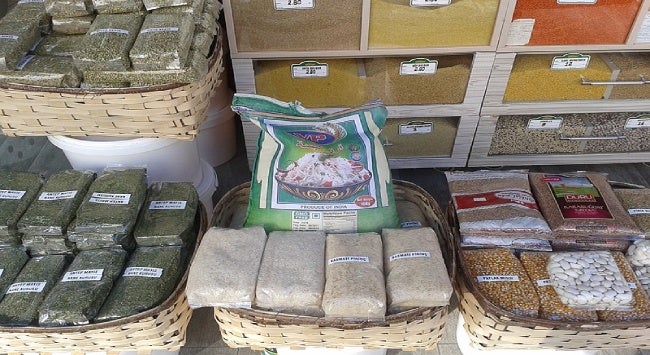
| Title: | India’s Rice Exports: World’s Food Security Challenges |
| Author/s: | Jayan Jose Thomas, B Satheesha |
| Abstract: | This working paper explores the linkages between trade and food security in the context of India’s ban on the export of non-basmati white rice in July 2023. While rice is the staple food for about half of the world’s population, there are significant challenges to improving access to food globally through trade in rice. A few Asian countries, notably China, India, Pakistan, Indonesia and Bangladesh, are some of the major producers and also consumers of rice. Therefore, rice is a thinly traded commodity, with India alone accounting for about 40 per cent of the rice sold internationally. Following India’s rice export ban, there have been fears about rising food prices, particularly in food-insecure African countries, which collectively purchase about half of India’s rice exports. At the same time, India is trying to ensure adequate domestic supplies of food grains to restrain consumer inflation and to provide for the public distribution of subsidised food. Meanwhile, there are concerns about the future growth of rice production, especially in the wake of unpredictable weather patterns and climate change in South and Southeast Asia. |
| Date: | 30 August 2024 |
| Read More |
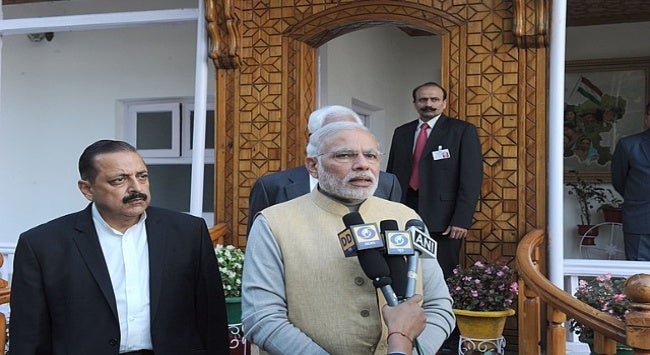
| Title: | Political Interviewing on YouTube: An Analysis of Indian Politicians’ Engagement with Digital Influencers and Media Houses Online |
| Author/s: | Rudransh Mukherjee, Shaily Desai, Dhruv Raghavan and Joyojeet Pal |
| Abstract: | With digital media competing with mainstream media to shape public opinion during election cycles, there are still open questions on the comparative value of different media platforms for the politicians’ outreach goals. We collected data on 151 politician interviews across 25 YouTube channels that interviewed Indian politicians in the last year and conducted a mixed methods analysis of the content and views of these interviews. We found that (a) political content garners comparatively higher engagement on channels that are primarily digital, than on YouTube channels of mainstream media outlets; and (b) there are significant differences in both the self-portrayal and the substantive engagement of politicians in interviews in the two mediums. Our findings underline the importance of a deeper examination of the importance of digital influencers, standalone anchors and journalists who set up their own social media channels to understand the challenges they pose to mainstream media houses. |
| Date: | 14 August 2024 |
| Read More |
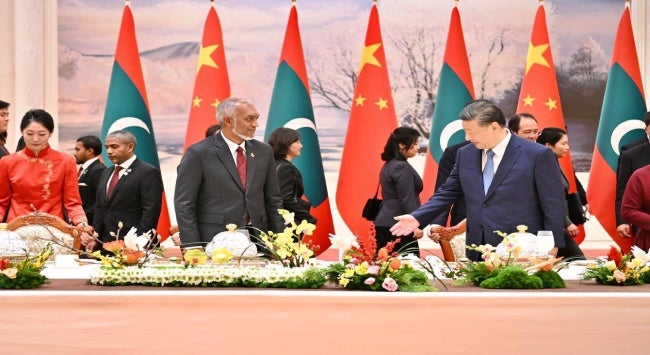
| Title: | Implications of Securitising and Desecuritising the Maldives’ Partnerships |
| Author/s: | Athaulla A Rasheed |
| Abstract: | When President Mohamed Muizzu won the 2023 election, international commentariats and observers quickly labelled the Maldives’ new government as pro-China. Due to a country’s potential alignment with China, this type of framing has not been uncommon with small states. China’s port development project in Sri Lanka was flagged by India as a potential security threat to regional order. In the Pacific region, former Secretary General of the Pacific Islands Forum, Dame Meg Taylor, expressly rejected the view that a ‘China alternative’ must resonate with a ‘pro-China’ label when the Pacific Islands seek to expand development cooperation efforts with all willing partners.This type of framing has tended to securitise certain foreign partnerships of the Maldives and could potentially undermine the country’s national security and foreign policy objectives in regional settings. |
| Date: | 23 July 2024 |
| Read More |
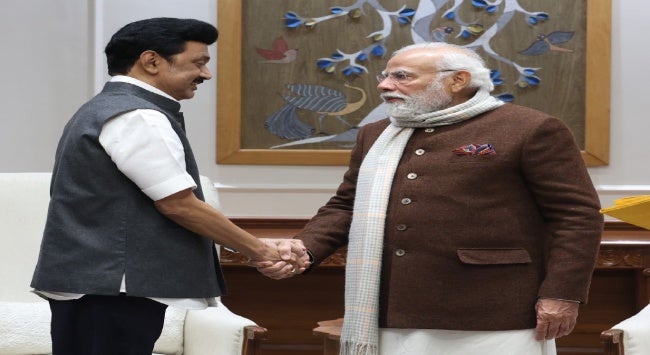
| Title: | Standout State: Tamil Nadu in the 2024 Election |
| Author/s: | Narayan Lakshman |
| Abstract: | Tamil Nadu politics has been dominated by regional parties for nearly half a century. However, the leadership churn in recent decades has altered the power balance significantly. On the eve of the 2024 election results, this paper raises critical questions on what ramifications this has for the governance of the state. |
| Date: | 17 May 2024 |
| Read More |

| Title: | The Changing Global Order and China’s Rise |
| Author/s: | Masood Khalid |
| Abstract: | No other development has had a greater impact on contemporary world politics than the rise of China. It has altered the global balance of power and triggered a discourse centred on the inevitability of a conflict between an existing power and an emerging one. However, a contrary and a more optimistic view is that both China and the United States (US) will rationally manage their relations and coexist, impelled by their interdependence and considerations of mutually assured destruction. Both have a stake in the present global order; China being its beneficiary and the US as its architect. However, both will have to agree to a type of framework which defers to each other’s interests and sensitivities, finds cooperative solutions to universal challenges, shuns zero-sum-approaches and works for global peace and security. |
| Date: | 4 April 2024 |
| Read More |
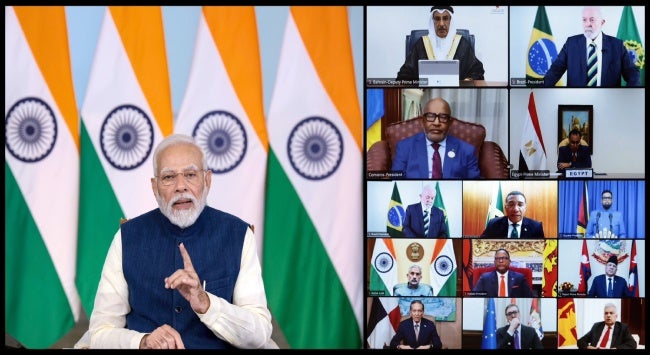
| Title: | Reimagining India’s South Asia Playbook While Batting for the Global South |
| Author/s: | Monish Tourangbam |
| Abstract: | As India projects an era of aspirational diplomacy aimed at global leadership, managing its immediate neighbourhood still beckons acute attention. The question arises as to whether India is overstretching itself and not aligning capabilities and aspirations by emphasising its Global South strategy, while its vicinity calls for greater focus. This paper attempts to assess India’s playbook for South Asia while it bats for the broader Global South. It also attempts to inquire whether India could align the concerns closer to home with the call for a more exalted leadership of the Global South and how India could leverage bilateral and multilateral partnerships in this enviable yet challenging endeavour. |
| Date: | 21 March 2024 |
| Read More |
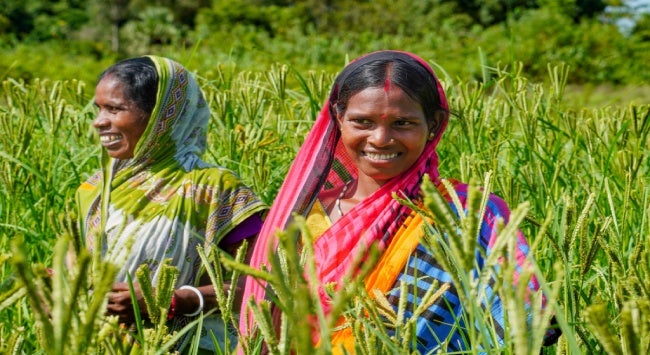
| Title: | Revisiting the Controversy on Hunger and Food Security in South Asia |
| Author/s: | Puspa Sharma |
| Abstract: | The Indian government has strongly objected to the findings of the report on the Global Hunger Index and the report of the Food and Agriculture Organization of the United Nations on food security. This paper analyses the controversy and finds that there are merits and demerits in both the reports and the objections, which need to be carefully scrutinised further. There is a need for serious introspection on this subject by both the report producers and national governments. This is important because, among other things, the findings of these reports also inform the monitoring of countries’ progress in Sustainable Development Goal No 2, that is, ‘Zero Hunger’. |
| Date: | 28 February 2024 |
| Read More |
Load more


